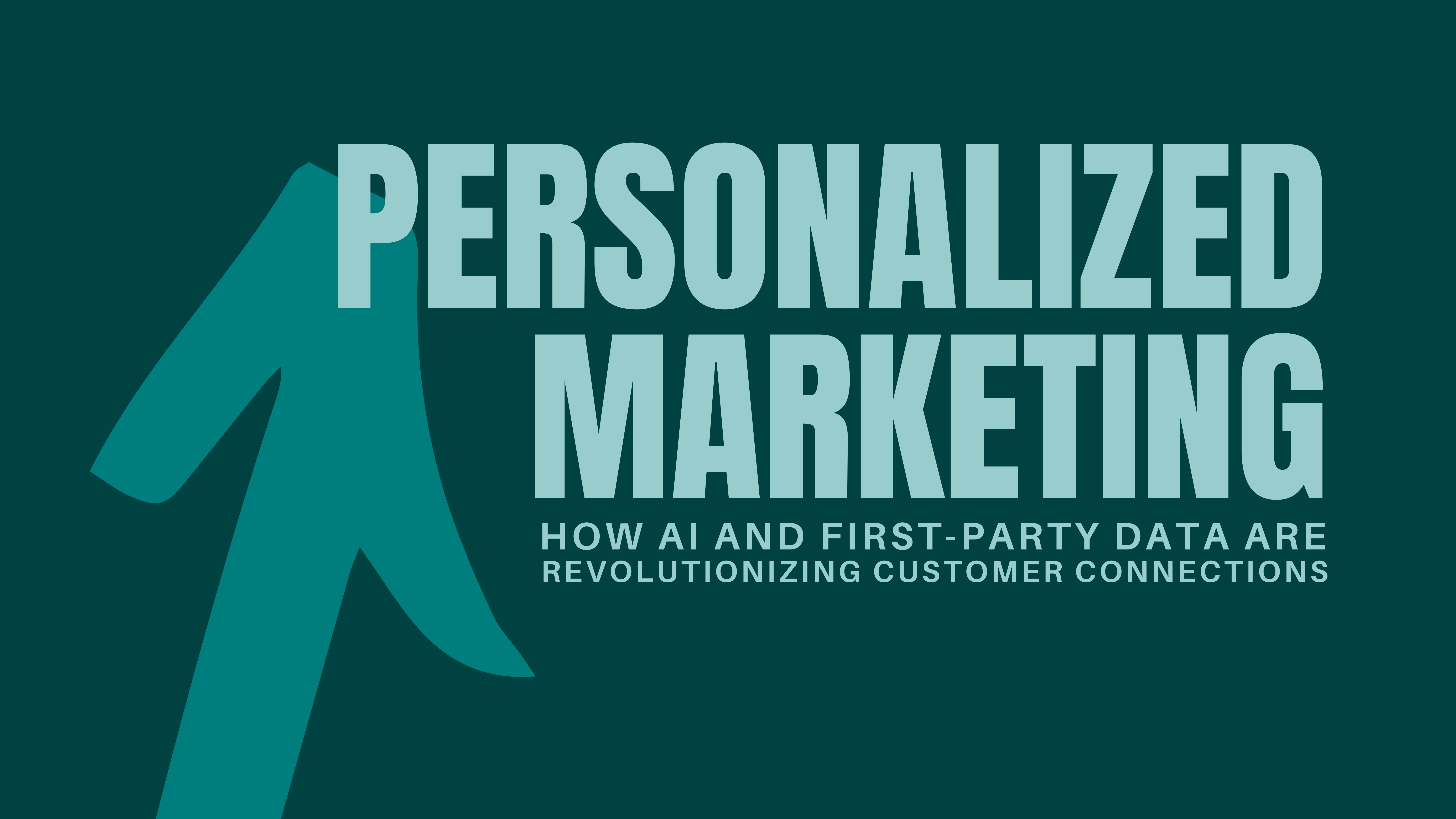Imagine a world where every customer interaction feels tailor-made—where your business marketing not only meets expectations but anticipates them. According to a recent study by Accenture, 91% of consumers are more likely to shop with brands that provide relevant offers and recommendations. This isn’t a vision of the distant future; it’s the reality of 2025. AI-driven personalization and first-party data utilization are at the forefront of this transformation, enabling businesses to create meaningful, data-backed, and compliant experiences. But what does it take to implement these strategies effectively? How can businesses stay ahead of competitors while navigating privacy regulations and technological shifts?
Gone are the days of relying on third-party cookies to track customer behavior. With data privacy regulations like GDPR and CCPA enforcing stricter controls, first-party data has emerged as the gold standard. Research from Deloitte highlights that 61% of high-growth companies are shifting to first-party data strategies to drive marketing personalization. It’s not just a compliance tool—it’s the foundation of modern marketing. First-party data is the information your business collects directly from customers through owned channels such as website visits and behaviors, mobile app interactions, email campaigns, surveys, and purchase histories. This data is voluntarily shared by customers, making it inherently more accurate and valuable.
Unlike third-party data, first-party data reflects real customer behaviors and preferences. Its reliability enhances the precision of marketing strategies, while its compliance with privacy laws reduces legal risks. Additionally, businesses own and control this data, giving it long-term strategic value. For example, a retail brand that collects first-party data through loyalty program sign-ups can analyze it to identify that customers aged 25-34 prefer eco-friendly products, refining their offerings and campaigns accordingly. In fact, McKinsey reports that personalization can deliver five to eight times the ROI on marketing spend and lift sales by 10% or more.
If first-party data is the fuel, artificial intelligence is the engine that drives personalized marketing. AI allows businesses to go beyond static segmentation, delivering experiences tailored to each customer in real time. From dynamic content delivery and predictive analytics to recommendation engines, AI transforms raw information into actionable insights. A global e-commerce company, for instance, analyzed browsing data from its website using AI. By integrating predictive models, it personalized homepage recommendations, resulting in a 25% increase in conversions. Gartner predicts that by 2024, organizations using AI for digital commerce will see at least a 25% improvement in customer satisfaction.
When first-party data meets AI, the result is a seamless blend of insight and action. Together, they allow businesses to build comprehensive customer profiles, deliver contextual experiences, and optimize marketing spend. For example, a SaaS company integrated AI with its CRM to segment customers based on engagement levels. By sending tailored renewal reminders to high-value clients, the company reduced churn by 18%. A report by PwC notes that 52% of businesses are already using AI to enhance customer relationships, underscoring the growing reliance on this technology.
While the benefits are clear, implementing AI-driven personalization and first-party data strategies isn’t without challenges. Transparency is critical in data collection ethics, as customers need to trust how their information is being used. According to a study by Cisco, 84% of consumers care about data privacy and want more transparency from companies. Many businesses also struggle to unify data across platforms or scale personalization without becoming resource-intensive. These challenges can be addressed by adopting robust CRM platforms like HubSpot or Salesforce to centralize data, partnering with experienced consultants to guide implementation, and using automation tools to scale personalization efforts efficiently.
To execute these strategies effectively, businesses need the right tools. Data management platforms like Segment or Snowflake help unify and manage customer data. AI-powered marketing platforms such as Adobe Sensei, Google AI, and HubSpot’s AI features simplify personalization at scale. Customer journey analytics tools like Tableau or Power BI provide deep insights into customer behaviors. KR1STNA Media offers hands-on expertise in selecting, implementing, and optimizing these tools to fit your business’s unique needs.
The combination of AI and first-party data is already delivering success for many businesses. A direct-to-consumer skincare brand facing low repeat purchases leveraged AI and first-party data to personalize post-purchase emails recommending complementary products, resulting in a 40% increase in repeat sales. Similarly, a B2B SaaS company used these strategies to segment at-risk clients and offer tailored solutions during onboarding, reducing churn by 25% within six months. A recent report by Harvard Business Review reveals that companies using advanced personalization see 19% higher revenues compared to their peers.
As we move further into 2025, the combination of AI and first-party data will only grow more sophisticated. Hyper-personalization will leverage even more granular data to create ultra-customized experiences, while voice and visual AI will extend personalization beyond text to voice assistants and visual search. At the same time, first-party data collection will become even more transparent, earning greater customer trust. Businesses that adopt these strategies now will be well-positioned to capitalize on these trends.

The future of marketing belongs to businesses that embrace AI-driven personalization and first-party data utilization. These tools don’t just improve ROI—they build trust, loyalty, and long-term growth. KR1STNA Media is your partner in navigating this transformation. From selecting the right tools to implementing scalable strategies, we have the expertise to help you succeed. Contact us today to start your journey toward personalized, data-driven marketing excellence.



